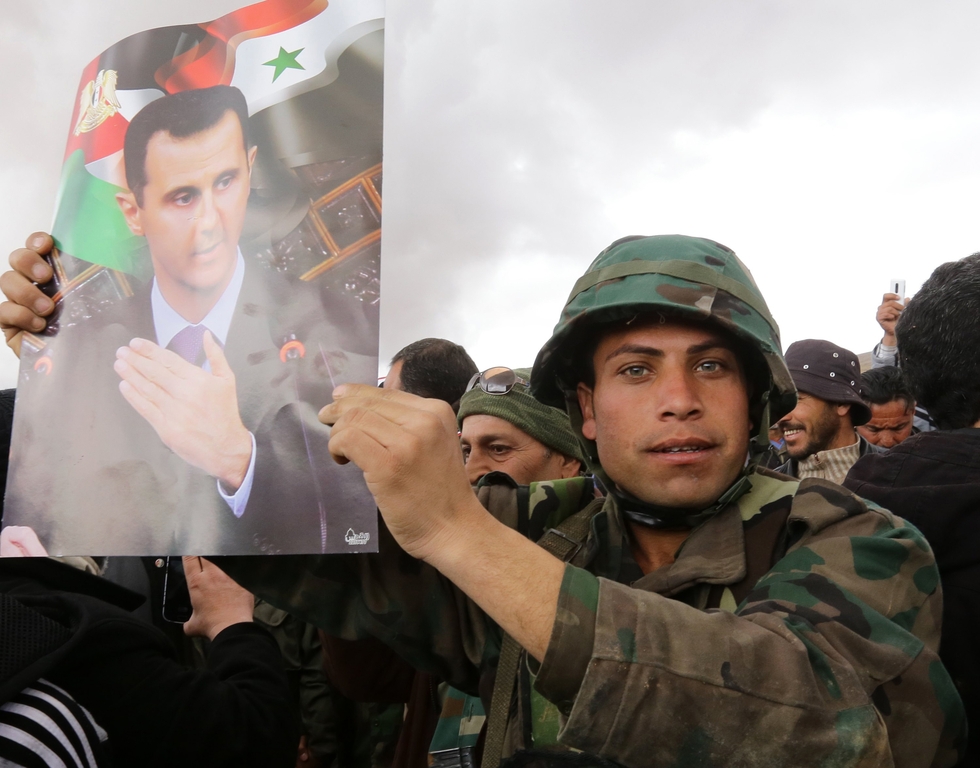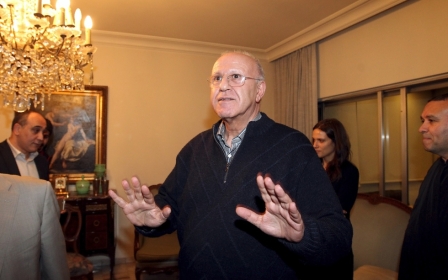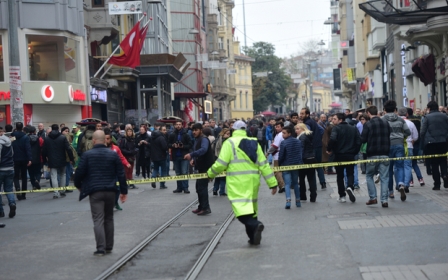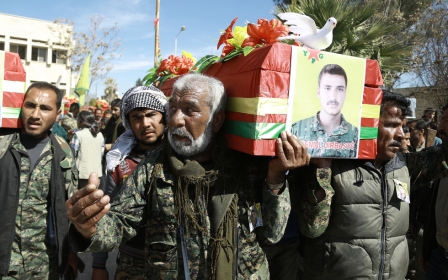Assad and rebels should join forces against IS: UK parliamentary committee

LONDON - Syrian President Bashar al-Assad and the opposition should fight together against the Islamic State (IS) group, a British Parliamentary report has said.
The two opposing sides, currently engaged in peace talks in Geneva, should work to "reclaim Syrian territory jointly from ISIL", the UK foreign affairs committee said in a report released on Thursday, using a different acronym for IS.
"The fight against ISIL cannot wait for a comprehensive peace settlement. In the short term it is imperative that the cessation of hostilities be maintained, and that all parties arrive at a preliminary political accord so they can then focus their attention on the fight against ISIL," the committee report said.
"If the armed forces of the Syrian Arab Army and the Free Syria Army on ceasefire are able to agree on an early mutual purpose to reclaim Syrian territory joint from ISIL, they can begin a positive founding narrative of a new Syria and built trust, which should ultimately allow for the resolution of the hard issues."
This apparently runs counter to previous statements by British Prime Minister David Cameron and the Foreign and Commonwealth Office (FCO) that have blamed the lack of political progress and Assad’s continuing grip on power for fuelling IS.
In his response to the last committee briefing on Syria, issued late last year, Cameron said he would “work through the political negotiations towards a ceasefire between the Syrian armed forces and moderate opposition, which would create the conditions to allow both sides to focus their military efforts on ISIL".
However, the committee - which is made up of Conservative and Labour MPs - said on Thursday it "remained unpersuaded that the talks involving all parties provide an incentive for people to join ISIL".
It also said that FCO’s public statements, some of which have been heavily critical of Assad and his Russian allies, "have not always been constructive".
Instead it urged for "greater engagement with these actors, as well as Iran", saying that doing this at "an earlier stage might have brokered an earlier cessation agreement".
While the committee recognised "well known policy differences" between London and Moscow, it called for closer dialogue with Russia, calling this "a prerequisite” if the UK wished to influence events in the region.
The report further queried the government's rhetoric, saying that insufficient resources had been sunk in to back this up.
"It is plain that the Prime Minister’s 'full diplomatic weight' does not reflect actual human resources," the committee said.
The report is the committee’s third in the 2015-2016 session and focuses on the cessation of hostilities between the government and the recognised opposition in Syria that began last month and has largely held. The ceasefire does not include IS or other “terrorist” actors like al-Qaeda’s Syria affiliate the Nusra Front.
Chris Doyle, director of the Council for Arab-British Understanding, criticised the report's calls for a joint anti-IS offensive.
"Any notion that an unreformed Syrian army - still operating under President Assad’s command - and the Free Syrian army in all its myriad forms, are going to collaborate and fight together absent a full political deal is truly fanciful," he told Middle East Eye. "It is wishful thinking not rooted in a grounded understanding of the realities in Syria today."
But Julien Barnes-Dacey, a senior policy fellow at the European Council on Foreign Relations, said the move was evidence of a "wider shift" toward accepting a “new reality” where Assad stays at least in the short term.
“There have been quite a number of voices that have effectively been saying that the priority has to be a fight against IS rather than the urgency in seeing Assad deposed,” he told MEE.
“It’s beyond time that that kind of realism is brought to bear on British policy toward Syria at large and the IS fight in particular."
IS has claimed Tuesday’s deadly attack in Brussels where more than 30 people were killed and has also taken responsibility for the bloody attacks in Paris last November in which 130 people died.
While “an immediate prospect of them joining up is far fetched” a geographical arrangement that “sees power moved away from Damascus and a number of anti-IS fronts” emerge is possible, Barnes-Dacey explained.
“In some respects that is happening at the moment in terms of the current ceasefire where we have seen a decrease in fighting against each other while both [the government and the opposition] have moved against IS with new intensity,” he added.
The Syrian government on Thursday night said that it could retake the IS-held desert city of Palmyra within hours with varying reports putting pro-government troops between 800 metres to two kilometres from the city that fell to IS last May.
If the city falls back into government hands, it would be a strategic victory for Assad and his Russian backers who intervened on his behalf military last September and have provided heavy air cover to his forces in Palmyra.
Doyle, however, urged caution and said that Palmyra was an isolated example.
Not only are Assad’s forces depleted after five years of war, it is unlikely that some kind of joint offensive could win popular support, he said.
“The level of animosity between the Syrian loyalists and the opposition is so acute and political differences are so wide that it is quite hard to see them agreeing, even indirectly, that IS is the biggest threat,” Doyle said.
“Syrian popular pressure is one of the only reasons that the ceasefire is being maintained and people are putting a lot of pressure on all sides because they are finally able to do things that they have not been able to do for a long time.”
Only by focusing on negotiations and establishing trusted institutions, can a level of trust be restored and some kind of joint policy conceived, he said.
“For most Syrians it is the Syrian regime that is the problem - they have been the biggest killers, they have dropped barrel bombs,” said Doyle. "People want to see reconstruction and a release of prisoners be made a priority.”
The five-year conflict has devastated Syria. The UN estimates that 6.6 million people are internally displaced and at least a further four million have become refugees largely in neighbouring countries. More than 270,000 people have been killed.
While the West and many Arab countries initially backed the opposition, its failure to unify helped Assad to hold on thanks to support from allies Iran and Russia. Russia's decision to intervene directly last September is widely credited with turning the tables in Assad's favour, although pro-Damascus forces have until recently not proven particularly effective against IS.
New MEE newsletter: Jerusalem Dispatch
Sign up to get the latest insights and analysis on Israel-Palestine, alongside Turkey Unpacked and other MEE newsletters
Middle East Eye delivers independent and unrivalled coverage and analysis of the Middle East, North Africa and beyond. To learn more about republishing this content and the associated fees, please fill out this form. More about MEE can be found here.




